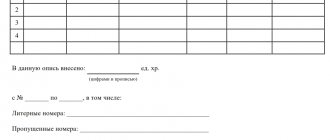Common transaction payment options
One of the key terms of the contract is the procedure for settlements under the contract, for which the parties are required to agree on how and in what manner payments and settlements are made for the shipment of products, performance of work or services.
Partners agree on the form, currency, timing and frequency of payment under the contract. For example, the most common form is non-cash payments using payment orders. The payment deadline is set on an individual basis. Most of the payments are made in Russian rubles.
There are several options for settlements between counterparties. Let us remind you what forms of payment there are under the contract in 2021:
- Advance payment. The terms of the contract provide for the payment of an advance. The amount of the advance payment is determined by the parties to the transaction. A common option is to transfer an advance in the amount of 30% of the contract amount.
- Prepaid system. The system is similar to advance payment, but provides for up to 100% payment of the contract value in advance. That is, the customer first pays for the transaction, and only then the contractor fulfills the conditions.
- Postpay. The payment method is completely opposite to the prepaid system. In this case, the transaction is paid by the customer after 100% fulfillment of the terms of the contract. For example, only after the goods have been shipped to the customer’s warehouse.
- Installment and deferment. The actual payment for goods under the supply agreement is distributed over time. The payment schedule is agreed upon by the parties separately. Installment or deferred payment under a contract can be free (interest-free) or provide for the accrual of additional interest.
It is important for the parties to take into account the specifics and rules of how to specify payment terms in the contract; incorrect wording or controversial interpretation will lead to additional risks of debt formation.
Why do banks control our operations?
“The credit institution itself does not pursue the goal of limiting the activity of its clients in any way. On the contrary, the bank is interested in increasing the number of transactions and increasing the volume of funds flowing through accounts.
All restrictive measures of financial institutions are aimed at protecting the money of their clients and suppressing illegal transactions. All those formalities that may complicate a large payment are not carried out in order to “ruin the lives of ordinary people and businesses,” they only pursue goals that meet the interests of both the state as a whole and ordinary citizens,” explains the expert.
Article on the topic
Difficulties in translation. Banks want to block transactions without a response from the client. The volume of funds stolen by fraudsters from the bank accounts of Russians is growing from year to year. It is possible to return no more than 7-8% of the stolen amounts to the rightful owners. Scammers are extremely inventive, and most thefts become possible due to the inattention of the citizens themselves. All this requires financial institutions to closely study all significant and non-standard payments (for each individual client) in order to stop the theft of money.
“In this sense, no precautions on the part of credit institutions to check the validity of the transfer of funds can be considered unnecessary,” the expert points out.
Payment after the fact: examples of correct wording
To agree on the terms of payment upon delivery, the parties are required to determine the period within which the customer transfers funds in favor of the contractor. The procedure for specifying payment terms in the contract is standard. This is, for example, a specific calendar date or a period of time.
IMPORTANT!
The postpaid amount can be regarded as a commercial loan (clause 1 of Article 823 of the Civil Code of the Russian Federation). If the parties have determined this method of payment, then the contract should specify the terms of the commercial loan, the interest on it and the procedure for its payment.
Postpayment, or “goods on credit,” assumes that the delivery is pledged to the seller (supplier) until full payment (clause 5 of Article 488 of the Civil Code of the Russian Federation). The buyer has no right to dispose of the goods without the consent of the seller. But it is permissible to include in the contract a condition on the cancellation of the pledge (clause 2 of Article 346 of the Civil Code of the Russian Federation).
An example of how to specify in a contract the procedure for payment after the fact:
| The buyer is obliged to pay for the goods within 5 (five) working days from the date of receipt of the goods. The amount to be paid is a trade credit to the buyer. The buyer pays the supplier interest on the price of the goods in the amount of 9% per annum for each day from the moment of delivery of the goods until full payment by the buyer. Interest is paid at a time along with payment for the goods. The goods transferred under the contract are not considered to be pledged to the supplier. |
In some cases, deferred payment is regulated by regulations. For example, this is provided for the supply of certain food products with a limited shelf life.
Who sold hundreds?
There were two defendants - a certain citizen who bought the land, and the person to whom she later sold the hundred. The case was dealt with by the Troitsky District Court, which is now the territory of Moscow.
The district court completely agreed with the plaintiff and returned his plot to the citizen. The appeal agreed with this decision. Both buyers of the land went to the Supreme Court, proving that the owner knew everything about the sale and received the money, so the previous court decisions must be overturned. And the Supreme Court, after re-reading the case, took the arguments of these citizens quite seriously. This is what the dispute looked like from the point of view of the Judicial Collegium for Civil Cases of the Supreme Court.
A certain citizen owned a dacha plot of land. As expected, the plot had its own cadastral number. This land was sold by the owner at a very good price to a certain citizen, who paid the money and signed a purchase and sale agreement. Moreover, there is a clause in the contract that states that the money for the land is paid in full before signing the contract. The buyer registered ownership of the hundred square meters, and signed a transfer deed with the previous owner, that is, legally, she accepted the plot.
Gathering evidence is not only the work of the plaintiff and defendants, but also of the court itself
Almost immediately after registering ownership of the land, the lady sells the plot. The new owner was a certain citizen who registered the ownership of this land in the Unified State Register. But he simply did not have time to feel like the owner of hundreds of acres - the former owner of the land brought a claim to court that he did not sell the land, and asked to return the hundredths of land to him, declaring all purchase and sale agreements illegal, because he did not sign these papers.
The Trinity Court, after listening to the former owner, ordered a handwriting examination. She testified that in the contract with the lady, in the “seller” column, it was not the plaintiff, but someone else who signed. This became the main and only argument for declaring the purchase and sale agreement invalid with all the ensuing consequences. The court also noted that the defendant did not provide evidence that she transferred money to the plaintiff for hundreds.
The Supreme Court, starting to analyze the evidence in the case, referred to its plenum (dated December 19, 2003 No. 23) “On the court decision.” It emphasized that the court’s decision is considered justified if the facts important to the case are confirmed by “evidence examined by the court.”
The Civil Code has Article 301. It says that if property was purchased from someone who did not have the right to alienate this property, and the new owner knew nothing about the illegality of the transaction, then the old owner has the right to demand the return of his property. There was also a joint plenum of the Supreme and Arbitration Courts (N10 and N22 of April 29, 2010) on disputes over the protection of property rights. It also emphasizes that if a thing was “taken” from the owner “against his will,” then no matter how conscientious the new owner turns out to be, the property will be returned to the previous owner.
Having listed these norms, the Supreme Court emphasized: in such cases, one of the legally important circumstances that must be proven in court is the fact that the owner lost property against his will.
In our case, this fact was the results of a handwriting examination of the signature under the purchase and sale agreement, which proved that someone else’s hand signed the paper. The Supreme Court responded to this by saying that evidence must be provided by both sides of the dispute; if they do not convince the court, then the judge has the right to ask for additional evidence. If the parties cannot do this, then the court, at their request, itself requests the necessary evidence. Article 71 of the Civil Code describes in detail what constitutes written evidence. And it is also said which of such evidence is accepted in the original, and which can be given in the form of a certified copy. And the high court once again emphasized: collecting evidence is not only the work of the plaintiff and defendants, but also of the court itself.
The Supreme Court said all this for this reason: the Trinity Court did not accept or verify the evidence of the land buyer. And the citizen claimed that the land was sold to her by power of attorney, which was given by the owner, who has now become the plaintiff. The citizen has this document in her hands. It tells you what is for sale and at what price. It also says that a person with a power of attorney must be the owner’s representative in Rosreestr. And the same principal was the applicant when registering the transfer of ownership of the plot to the buyer. It is interesting that in the court case there are two powers of attorney in the name of one person who sold the disputed acres. Moreover, both papers have the same number, both are certified by the same notary, but the papers have different content about the terms of reference of the principal.
The Supreme Court was surprised why the first instance did not order an examination and did not begin to find out what was written in the original document. In the end, the court did not call the notary and did not ask him these questions.
The Supreme Court overturned the decision on this dispute and ordered the lawsuit to be reconsidered.
Advance or prepayment: we finalize the deal
With an advance or prepayment payment system, a payment agreement is drawn up before receipt of goods or completion of work (services). The parties agree on important terms in the following order:
- Determine the amount of the advance. It is possible to specify a certain amount of the advance or set it as a percentage of the total transaction price. For example, an advance is 100,000 rubles or 45% of the contract value.
- Specify the deadline for paying the advance (prepayment). This could be a specific calendar date or a specific period of time. For example, make an advance payment before September 15, 2021 or transfer an advance payment within 10 working days from the date of conclusion of the contract.
- Establish the volume or part of the cost of the goods (work, service), in favor of which the advance payment will be credited. This is an important condition of the deal and cannot be ignored.
Example of prepayment wording in a contract:
| Product delivery time is 02/08/2020. The buyer is obliged to pay for the delivery by making an advance payment in the amount of 100% of the cost of the goods by 02/05/2020. |
IMPORTANT!
If the advance is a commercial loan, then the parties are required to specify the conditions for its provision.
Example wording for an agreement when the advance is issued as a commercial loan:
| From the moment the advance is received until the goods are transferred, the supplier pays the buyer interest for using a commercial loan in the amount of 0.03 (zero point three) percent of the advance amount per day. Interest for the entire period is paid at a time, within 3 (three) business days after the delivery of the goods. |
Results
Even taking into account the tightening of control over transfers by individuals, the tax office does not have the right to impose personal income tax on such transfers by default. But in order to minimize the risk of blocking the card during the proceedings with the Federal Tax Service, individuals should carefully fill out the “Purpose of payment” field and avoid frequent transfers during the day. In addition, when lending money without interest, this fact should be supported by an appropriate receipt, so that a large amount upon return does not raise suspicions of receiving taxable income.
You can find out about other banking legislation news in our “Bank” section.
You can find more complete information on the topic in ConsultantPlus. Free trial access to the system for 2 days.
How to specify a cash payment clause
Once the method of payment for a transaction has been determined, the parties need to clarify the form of payment. Counterparties have the right to choose one of three formats:
- provide for cash payment in the contract;
- make a non-cash payment, for example, using payment orders;
- pay using other consideration (provide a service, perform work, etc.).
When choosing a cash form of payment, there is an important limitation. Organizations and entrepreneurs do not have the right to make cash payments under one contract in excess of the established limit of 100,000 rubles (clause 4 of Bank of Russia Directives No. 5348-U dated December 9, 2019). Otherwise, the company or individual entrepreneur will be held accountable for violating the rules of cash discipline.
How can individuals avoid problems with transferring money between cards?
Since the regulator issued new methodological recommendations specifically to banks, they can block the client’s card, suspecting that the requirement of Law No. 115-FZ is being violated. After which the tax office is involved in the consideration of the case.
It should be borne in mind that the Federal Tax Service does not have the right to automatically charge 13% personal income tax on amounts received on the card. To track funds in the account, the tax office must have permission from the head of a higher-level department of the Federal Tax Service as part of a tax audit (Article 86 of the Tax Code of the Russian Federation).
Please note that the following are not subject to personal income tax:
- free transfers (Article 217 of the Tax Code of the Russian Federation);
- cash gifts between individuals (letter of the Ministry of Finance dated 09/03/2021 No. 03-04-05/71523, dated 06/07/2019 No. 03-04-05/41947);
- transfers within family relations (Article 208 of the Tax Code of the Russian Federation);
- transfers that are not income (Article 209 of the Tax Code of the Russian Federation).
In what cases will you still have to pay personal income tax when transferring from card to card, ConsultantPlus experts told. If you don't have access to K+, get it for free on a trial basis.
To avoid unnecessary problems, individuals should follow several rules when making transfers:
- When transferring money from your card to the account of organizations or individual entrepreneurs, you should clearly indicate the purpose of the payment;
- when transferring money to friends and relatives, you should indicate that such a transfer is free of charge (indicate “as a gift,” “for groceries,” etc.);
- when repaying a debt, you should not indicate that it is a repayment with interest, otherwise the recipient will have taxable income in the amount of interest;
- transfers of large amounts should additionally be issued with a receipt indicating that the loan is interest-free.
Even if the tax service, based on the results of the audit, makes a decision on additional personal income tax assessment, this decision can be challenged in court. For this, you will need supporting documents in the form of receipts, payment instructions, etc.
How to specify the payment procedure in currency
If payment under the contract is made in foreign currency, then this condition should also be included in the contract. It is necessary to indicate the name of the foreign currency, the value of the contract and the procedure for making payments. For example, for settlements in foreign currency, the parties will have to open new bank accounts.
IMPORTANT!
If payments in foreign currency are made in cash, then a similar limit of 100,000 rubles applies. Within the framework of one contract, it is allowed to pay in cash an amount in foreign currency equivalent to 100,000 rubles. at the official exchange rate of the Bank of Russia on the date of cash payments. Check whether this condition has been violated in the transaction. If the limit is exceeded, there are fines.








